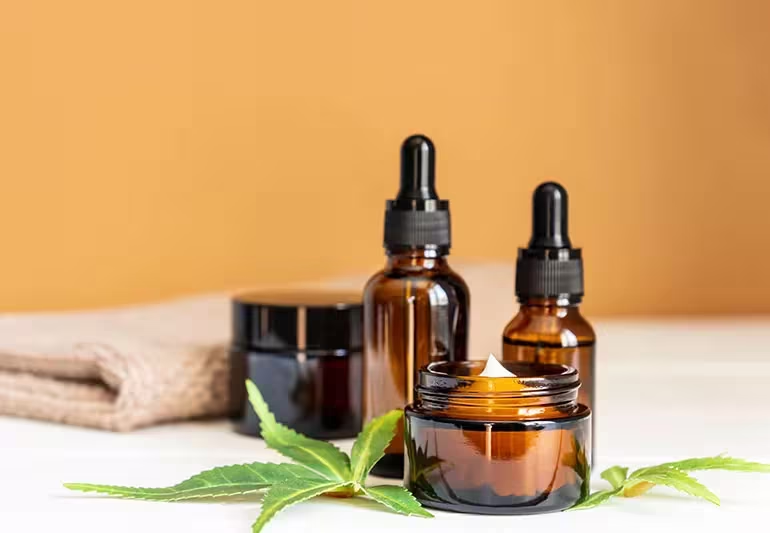Blog
Is CBD Good for Anxiety? A Science-Backed Look

Anxiety disorders are among the most common mental health conditions worldwide. Millions of people experience persistent worry, stress, or panic that interferes with daily life. Traditional treatments, such as prescription medications and therapy, can be effective, but not everyone responds well to them — and some people are interested in more natural approaches.
One compound that has gained enormous attention in recent years is CBD (cannabidiol), a naturally occurring substance found in hemp. At Happy Bears Edibles, many of our customers turn to CBD gummies, oils, or edibles hoping to ease anxiety and find a greater sense of calm. But the big question remains: does CBD actually help with anxiety?
Let’s take a closer look at the science.
What is CBD?
CBD (cannabidiol) is one of more than 100 cannabinoids found in the hemp plant. Unlike THC (tetrahydrocannabinol), which produces a high, CBD is non-psychoactive — meaning it won’t make you feel intoxicated.
Instead, CBD interacts with the body’s endocannabinoid system (ECS), a network of receptors that helps regulate mood, sleep, stress, pain, and immune responses. By supporting balance within this system, CBD may influence how we experience stress and anxiety.
The Science Behind CBD and Anxiety
1. Clinical Trials and Human Studies
-
A landmark 2011 study in Neuropsychopharmacology investigated CBD in people with social anxiety disorder. Participants who took a single dose of CBD before public speaking reported significantly reduced anxiety, cognitive impairment, and discomfort compared to placebo.
-
A 2019 study published in The Permanente Journal looked at CBD in 72 adults with anxiety or sleep disorders. Within the first month, 79% reported lower anxiety levels, and 66% experienced improved sleep.
-
Research published in Frontiers in Immunology (2020) suggested CBD may reduce stress-related symptoms by interacting with serotonin receptors — the same receptors targeted by many antidepressant and anti-anxiety drugs.
2. Animal Studies
Animal models show consistent evidence that CBD reduces anxiety-like behavior. In studies involving rats and mice, CBD produced effects similar to anti-anxiety medications without sedative side effects.
3. Brain Mechanisms
CBD appears to act on multiple brain systems:
-
Serotonin receptors (5-HT1A): linked to mood and anxiety regulation.
-
Amygdala and hippocampus: brain areas involved in fear and memory.
-
Cortisol levels: CBD may reduce cortisol, the stress hormone, which is often elevated in anxiety disorders.
CBD vs. Traditional Anxiety Treatments
Most doctors prescribe medications such as SSRIs, benzodiazepines, or beta-blockers for anxiety. These drugs can be effective but may come with side effects such as weight gain, sexual dysfunction, drowsiness, or dependence.
CBD, on the other hand:
-
Is generally well-tolerated.
-
Has a low risk of addiction or withdrawal.
-
May complement existing treatments.
However, CBD is not a replacement for medical care. If you’re taking prescribed medications, you should always speak with your healthcare provider before introducing CBD, since interactions are possible.
How to Use CBD for Anxiety
There isn’t a one-size-fits-all dosage for CBD. Factors like body weight, metabolism, and the severity of symptoms can all influence the ideal amount.
Popular Options:
-
CBD Edibles (like Happy Bears Gummies):
-
Easy, discreet, and pre-measured.
-
Longer-lasting effects (4–8 hours). (results may vary)
-
-
CBD Oil/Tinctures:
-
Taken under the tongue for faster absorption.
-
Flexible dosing.
-
-
CBD Capsules:
-
Convenient for consistent daily use.
-
Dosage Tips:
-
Many individuals find relief for anxiety in the range of 40mg to 60mg of CBD per day, split into one or two servings.
-
Some people prefer a single daily dose, while others benefit from dividing their intake (e.g., morning and evening).
-
For performance-based anxiety (such as public speaking), some may take a dose 30–60 minutes before the event.
-
Keep a journal to track how you feel at different amounts and adjust gradually.


